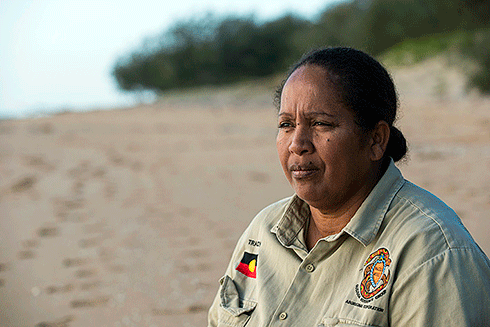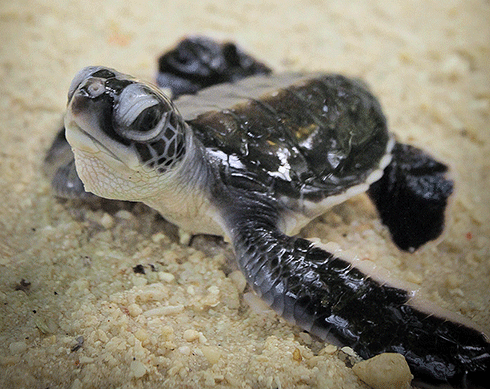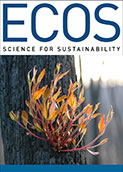
|
Published: 11 August 2014
Gudjuda rangers celebrate a year of turtle conservation
Home Hill's Gudjuda Indigenous Land and Sea Rangers in Queensland celebrated their one-year anniversary on World Ranger Day, 31 July. The rangers have been responsible for helping over 300 baby turtles out to sea and protecting turtle nesting habitats.

|
|
Tracey Lampton from the Gudjuda Reference Group. Credit: Kerry Trapnell/WWF
|
The Gudjuda Reference Group secured funding for five Indigenous ranger positions from the Queensland Government 12 months ago.
Over the last year, the rangers have helped over 300 baby turtles out to sea and tagged around 500 turtles at Edgecombe bay and Wunjunga beach. They have installed 20 kilometres of fencing along Alva Beach and Wunjunga Beach to protect sensitive turtle nesting areas from 4WDs.
The rangers have undertaken revegetation, helping to plant over 2000 trees and planting 500 square metres along sand dunes and water ways. They have also presented to 12 schools over a 200 km radius to raise awareness of looking after country.
According to Eddie Smallwood, Chairperson, Gudjuda Reference Group, the program has seen many social benefits, in addition to conservation outcomes.
‘Our rangers are helping to preserve and protect our culture, because it’s about our culture being trained back into our people. We visit and present to school children where we explain about healthy habitats, because in the future they are going to be our junior rangers,’ said Mr Smallwood.
WWF-Australia assists the Gudjuda Reference Group and its rangers by supporting ongoing turtle monitoring, providing boating and other equipment, and providing ongoing training.
WWF’s Townsville-based spokesperson Cliff Cobbo said: ‘These rangers are the eyes and ears of the sea country, including areas like the Great Barrier Reef Marine Park. It’s vital work as they are nurturing the cultural and environmental value of the area.’

|
|
Green turtle hatchling. Credit: Mazidi Abd Ghani, WWF-Malaysia
|
Source: WWF-Australia



